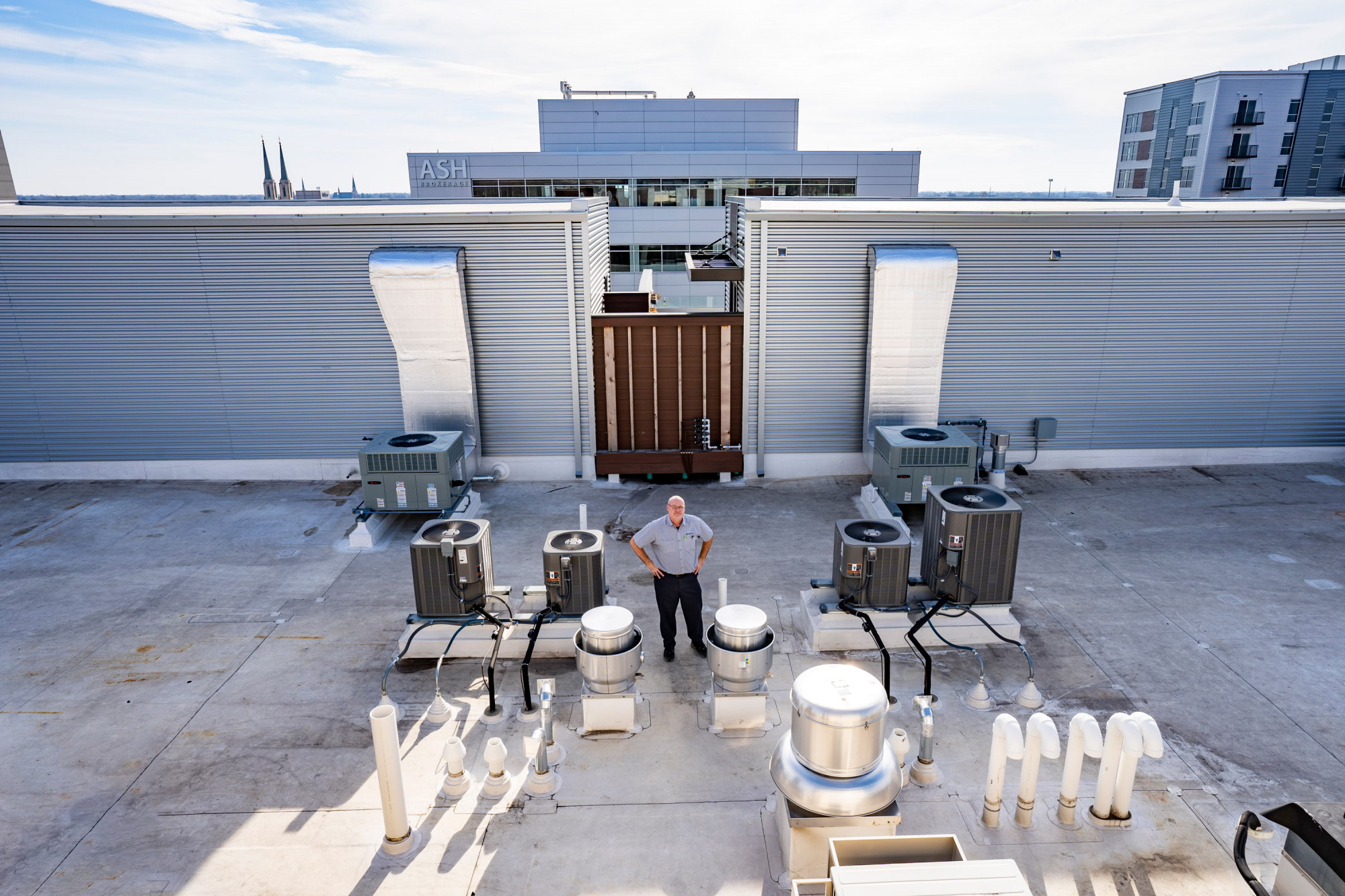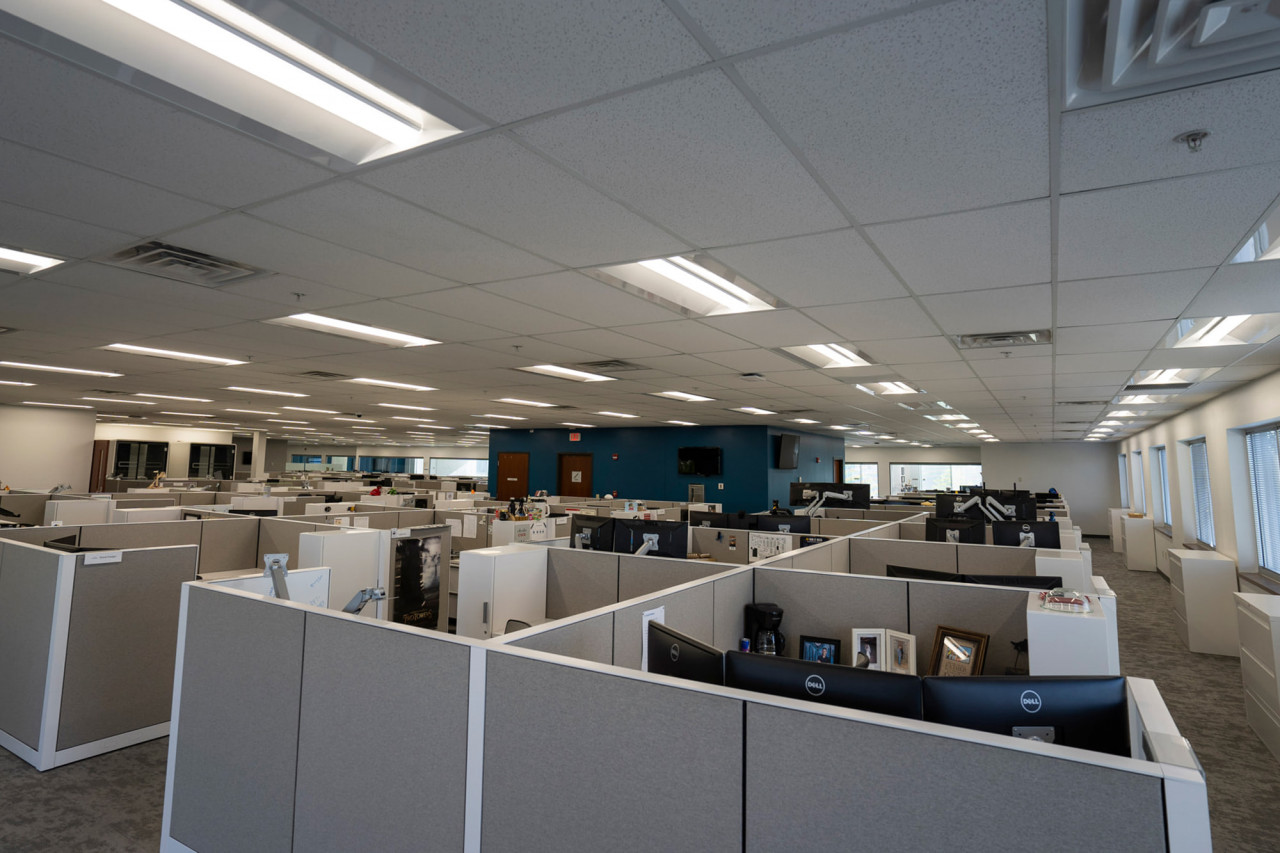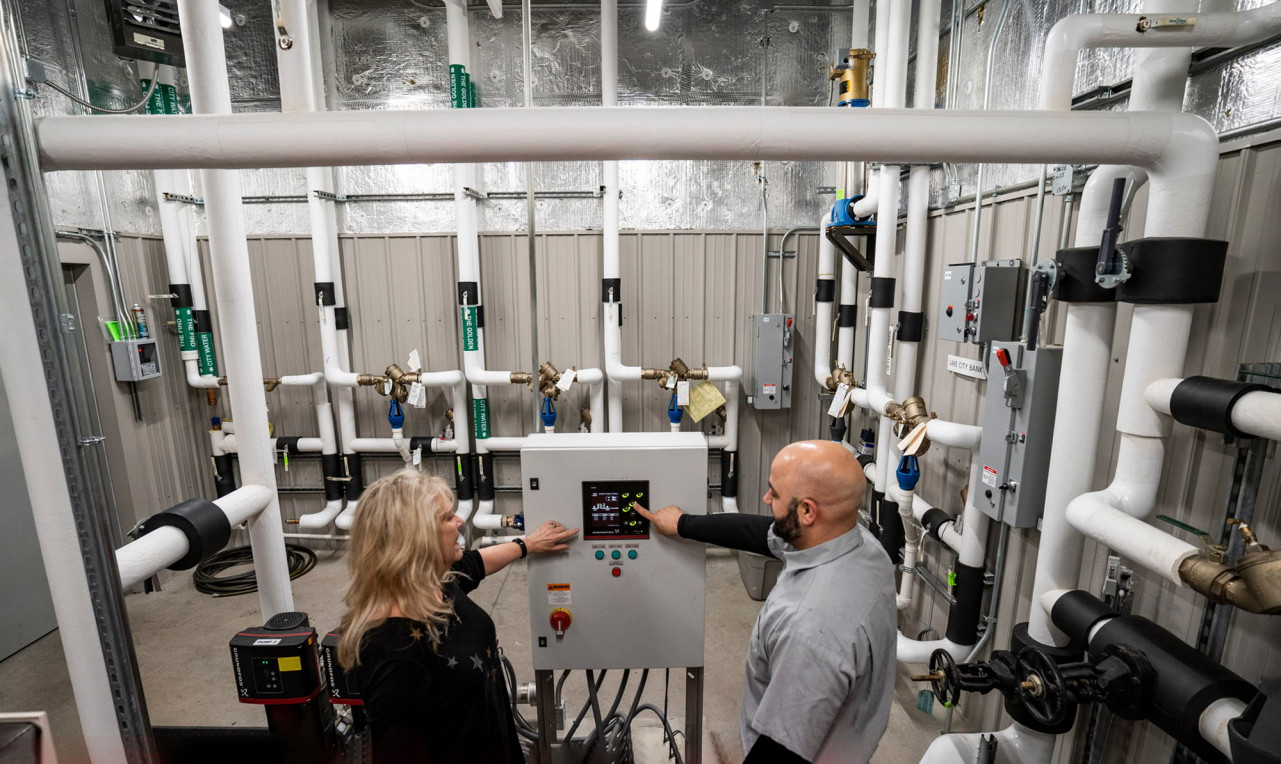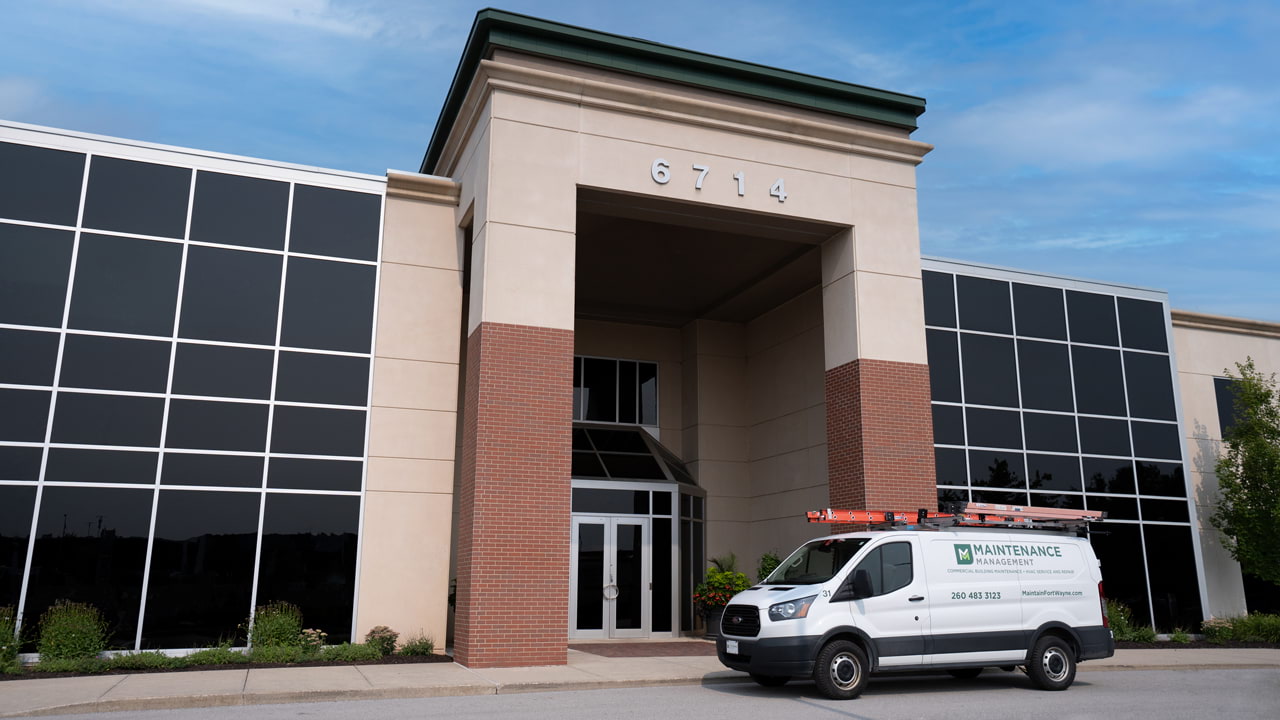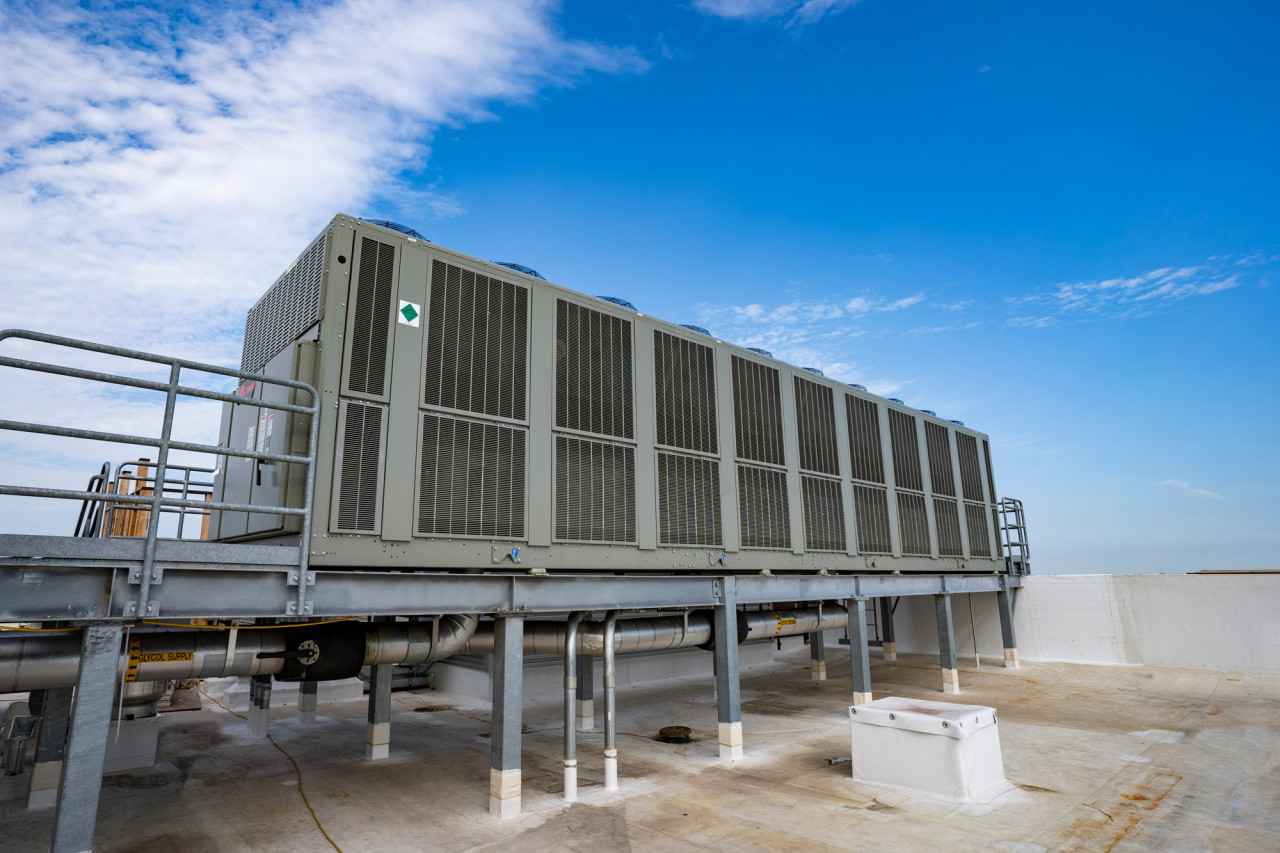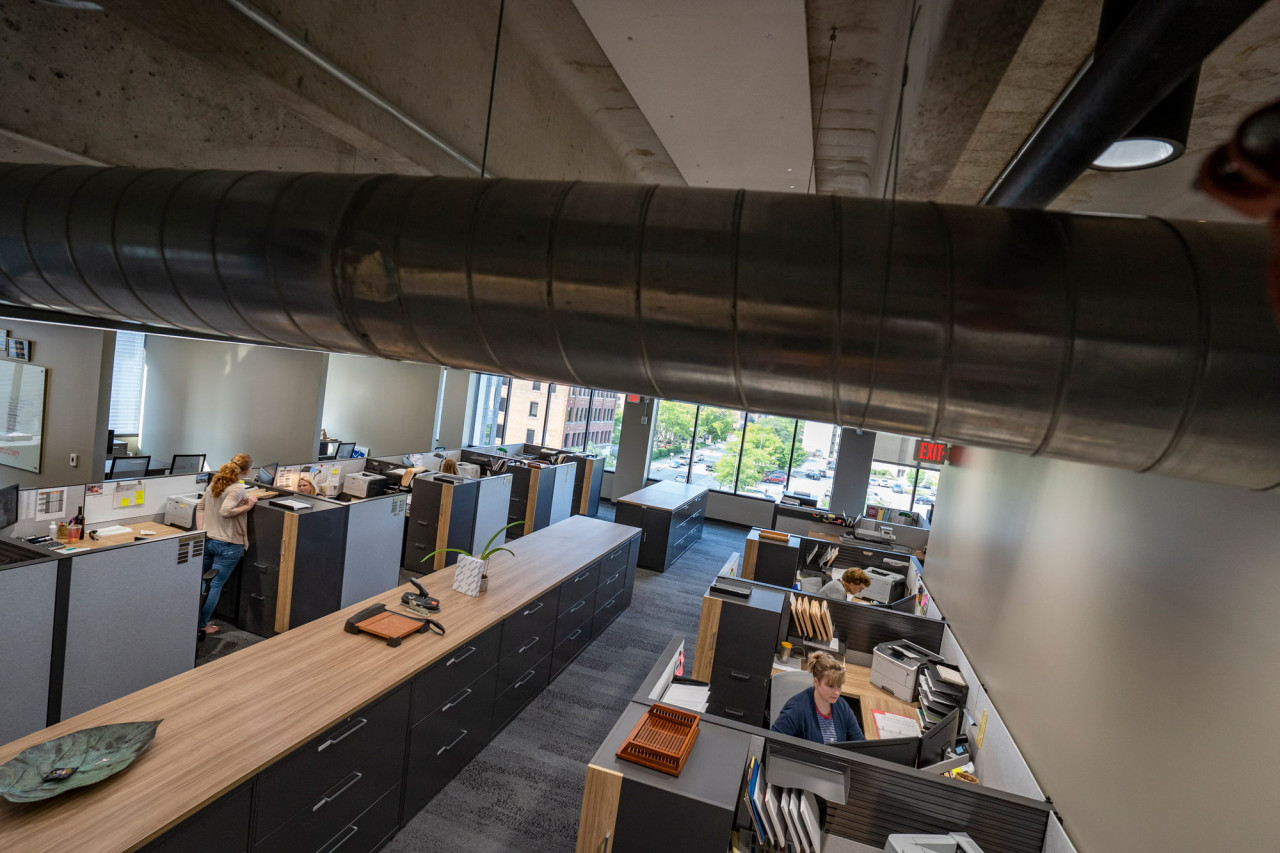Having your commercial buildings regularly inspected and maintained by experts provides many benefits, from catching problems early and avoiding costly repairs to ensuring that your property holds its value. The foundation for these advantages is a thorough and careful inspection.
Walking quickly through and around a building simply looking to check boxes on an inspection form may get a maintenance person on to their next job quickly, but it doesn’t give the property owner the value they’re paying for on their maintenance contract.
At Maintenance Management, we train our team to take their time and fully assess the environment they are in with four of the five senses. (Tasting is discouraged, for obvious reasons!)
Look
- Visual inspections involve viewing every element of an area. Are the light bulbs burnt out? Is the carpet in good condition or are there spots where it’s worn or torn? How is the paint holding up? Are there spots on ceiling tiles that could indicate a leaking pipe?
Listen
- Squeaking doors, strange noises from the HVAC system, and other unusual sounds can indicate the need for anything from minor maintenance (a little lubricant for a hinge) to a more significant repair. Either way, to a trained maintenance professional, the way things sound can be just as telling as the way things look.
Smell
- Odors can be a helpful way to assess the health of a mechanical system, especially one where the inner workings can’t be seen easily. For example, burning or musty smells from an HVAC system can indicate a problem.
Touch
- Physical sensations like a boiler that is particularly hot to the touch or a stiff door handle are signs to a skilled maintenance professional that, at a minimum, a closer inspection is warranted.
How to Get the Most From Your Maintenance-Focused Building Inspection
A maintenance inspection is an important part of building ownership and operation. To get the most value from this process, there are certain things to keep in mind. One is that you should allow ample time for the maintenance expert to do their work. A rushed inspection is not ideal for detecting problems.
You should also be prepared to provide the technician access to all areas of your property. You don’t want to have certain rooms or systems excluded simply because you didn’t have the key needed to access a particular room.
And because the technician will want to use the four senses above, it’s important to give them the time and space to work. They’re happy to answer your questions before and/or after the assessment, but an ongoing conversation isn’t conducive to being fully immersed in the evaluation.
